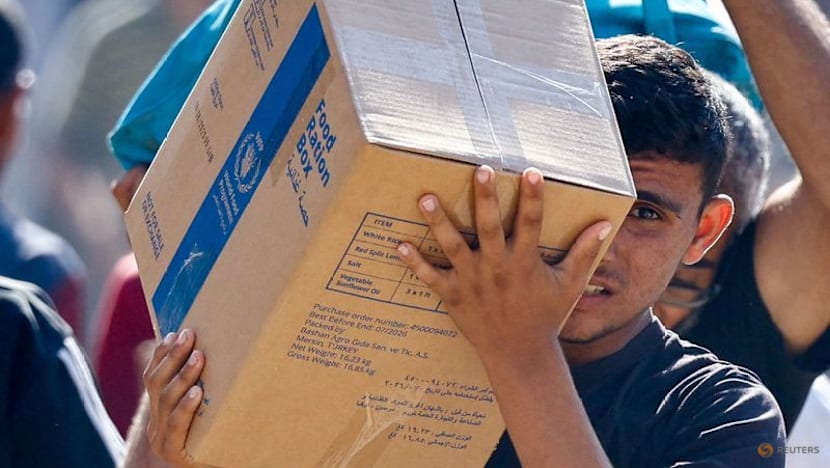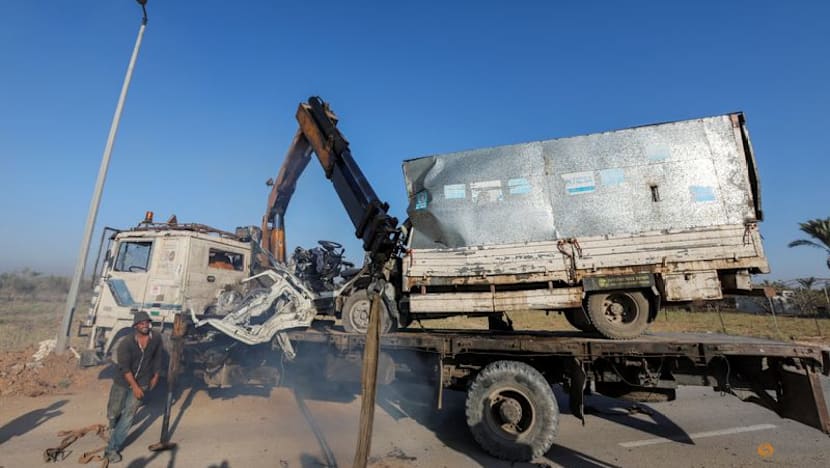US mulls Gaza aid plan to replace controversial foundation as WHO warns of dire shortages

WASHINGTON: The United States is considering a proposal to overhaul humanitarian aid operations in Gaza, potentially replacing the controversial US-backed Gaza Humanitarian Foundation (GHF), according to a plan seen by Reuters. The move comes as the World Health Organization (WHO) warned that assistance to the war-ravaged enclave remains far below what is needed.
The proposal, one of several being explored by Washington, envisions a “Gaza Humanitarian Belt” made up of 12 to 16 aid hubs positioned along the line to which Israeli forces have withdrawn within Gaza. Those hubs would serve civilians on both sides of the line, according to a US official and a humanitarian source familiar with the plan.
The hubs would include “voluntary reconciliation facilities” for militants to surrender their weapons in exchange for amnesty, and forward bases for a potential international stabilization force to help demilitarize Gaza.
Under the proposal, the GHF would be “absorbed or replaced” by other organizations, including the UAE and Morocco Red Cross branches, as well as Samaritan’s Purse, an evangelical Christian charity.
A US official described the plan as a conceptual approach still under discussion. “It’s not the only idea on the table,” the official said, adding that it was premature to speculate on implementation. A humanitarian official familiar with the document said it was “more like a white paper” and not yet policy.
“Multiple approaches are being considered to effectively get aid to the people of Gaza – nothing is finalized,” said a senior US administration official, speaking on condition of anonymity.

WHO CALLS FOR RAFAH REOPENING
The plan’s emergence follows warnings from the WHO that aid to Gaza remains a “fraction of what’s needed” despite the ongoing US-brokered ceasefire between Israel and Hamas.
WHO Director-General Tedros Adhanom Ghebreyesus said on Thursday (Oct 23) that rebuilding Gaza’s shattered health system could cost at least US$7 billion. He urged Israel to reopen the Rafah crossing with Egypt, where a large quantity of aid is stalled.
Aid transfers have slowed dramatically since Israel seized control of the Rafah crossing in May 2024. Fewer than four patients have been allowed to leave Gaza daily since a previous ceasefire collapsed in March, the agency said.
WHO also reported a slight improvement in food access under the current truce but said more than 600,000 Gazans still face catastrophic hunger. Palestinian health authorities say more than 67,000 people have been killed in the two-year war, with nearly a third of the dead under 18.
GLOBAL FUNDING SHORTFALL
The WHO warned of a “dire” global funding outlook for 2026–27, projecting over 14 million avoidable deaths worldwide due to cuts. The United States’ withdrawal from the WHO earlier this year has left a multi-billion-dollar gap in the agency’s budget, forcing a 21 per cent reduction in planned spending.
A US Central Command statement this week said the Civil-Military Coordination Center would continue to facilitate the flow of humanitarian and security assistance into Gaza. The White House has not commented on the proposal.
If implemented, the US plan could mark a major shift in Gaza’s aid architecture by replacing the GHF with a network of internationally managed hubs aimed at stabilizing the enclave and supporting long-term reconstruction.













